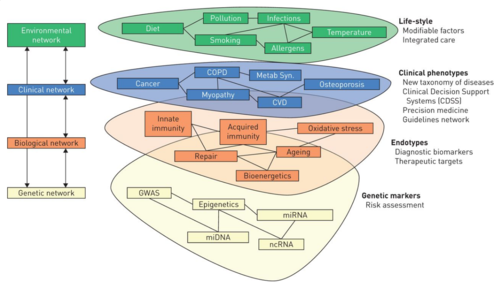To mark the shift of the European Respiratory Journal to a new, more modern publishing model, the ERJ is promoting discussion around the future of respiratory medicine: can we predict what is next, and if so how do we do it? Leading COPD researcher Dr Alvar Agustí has written an editorial, looking back at the changes in medical practice and technology that have taken place during his medical career and drawing on his experience to postulate some of the developments, good and bad, that we might expect to see in the next few decades. Now, Dr Agustí and the ERJ would like to invite you to have your say. What do you hope, expect or fear in the future of respiratory science and medicine?
As Dr Agustí remarks, "The list of potential advances in my article is far from complete, and no doubt time will prove me wrong in many cases. But by drawing on the collective knowledge and imagination of ERJ readers and ERS members, perhaps we can begin to 'invent' a future of our own, which is the first step to building one."
Readers are encouraged to give their views to discuss how we can learn from the developments of the past 40 years in order to predict – and shape – the future of respiratory medicine, be it through nanoparticle therapy, artificial organs, emerging or reclassified diseases, organisational change, or hundreds of other factors.
We hope to continue the discussion online with the aim of following up with a further ERJ article in the coming months. Respiratory professionals can post their thoughts and comments in the following ways:
- Using the comment box below this article
- On ERS Facebook and ERS Twitter using the hashtag #futurerespiratory
Professor Humbert said: "This is a very exciting time to be the editor of a medical journal, as we see not only the huge growth in computer processing power revolutionising the way in which we classify, diagnose and treat disease, but also an increasing focus on patients as individuals, able to empower themselves to make choices about their health. We also see huge challenges, from urbanisation to ageing populations and emerging diseases, and there is an increasing realisation that many of these challenges can only be addressed by researchers working across borders and specialties. It is important that we sometimes take a moment to lift our gaze from the bench, or the desk, or the ward round to think about where we are going as a group, and I think this discussion, and Dr Agustí's article, are a great opportunity to do that."





